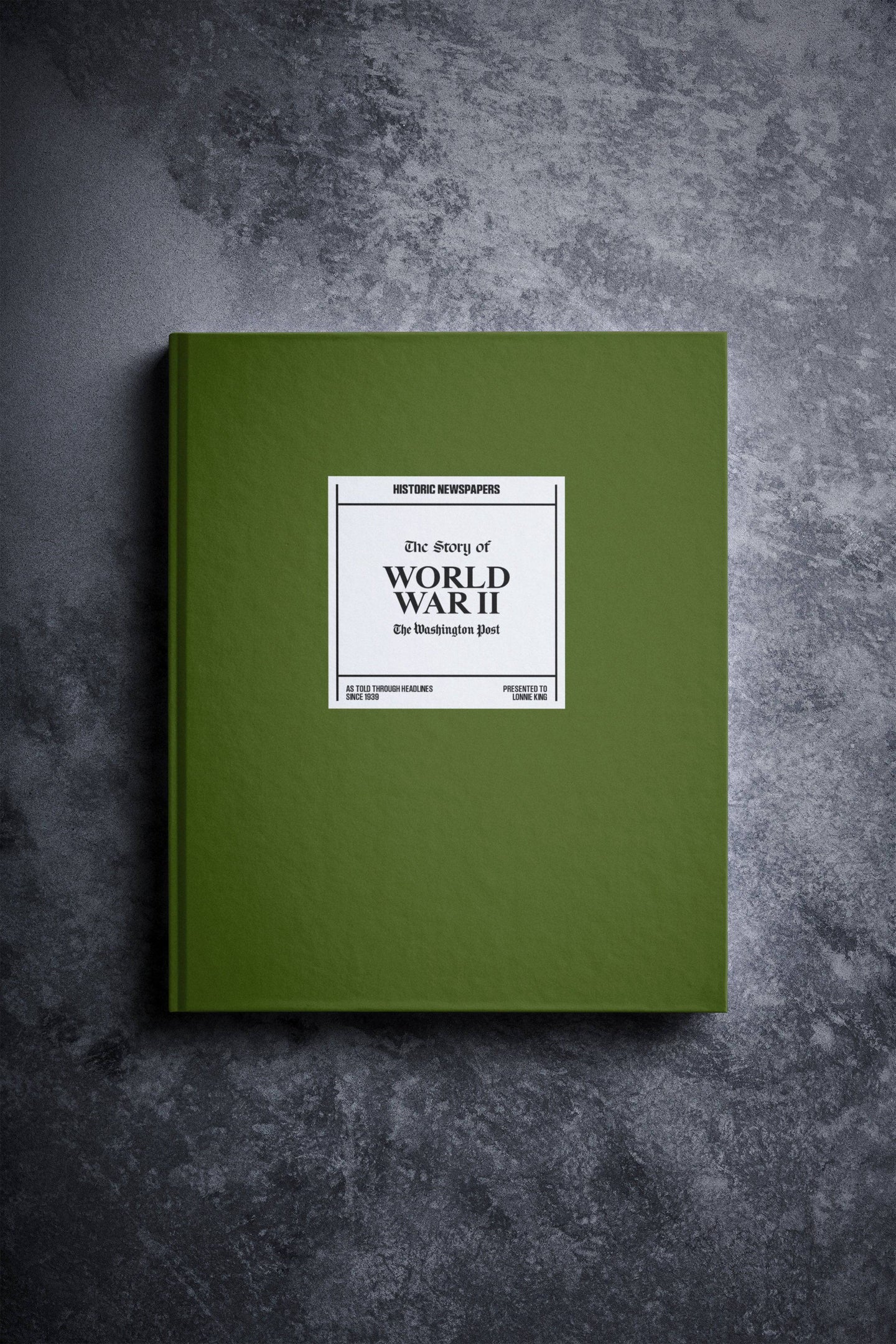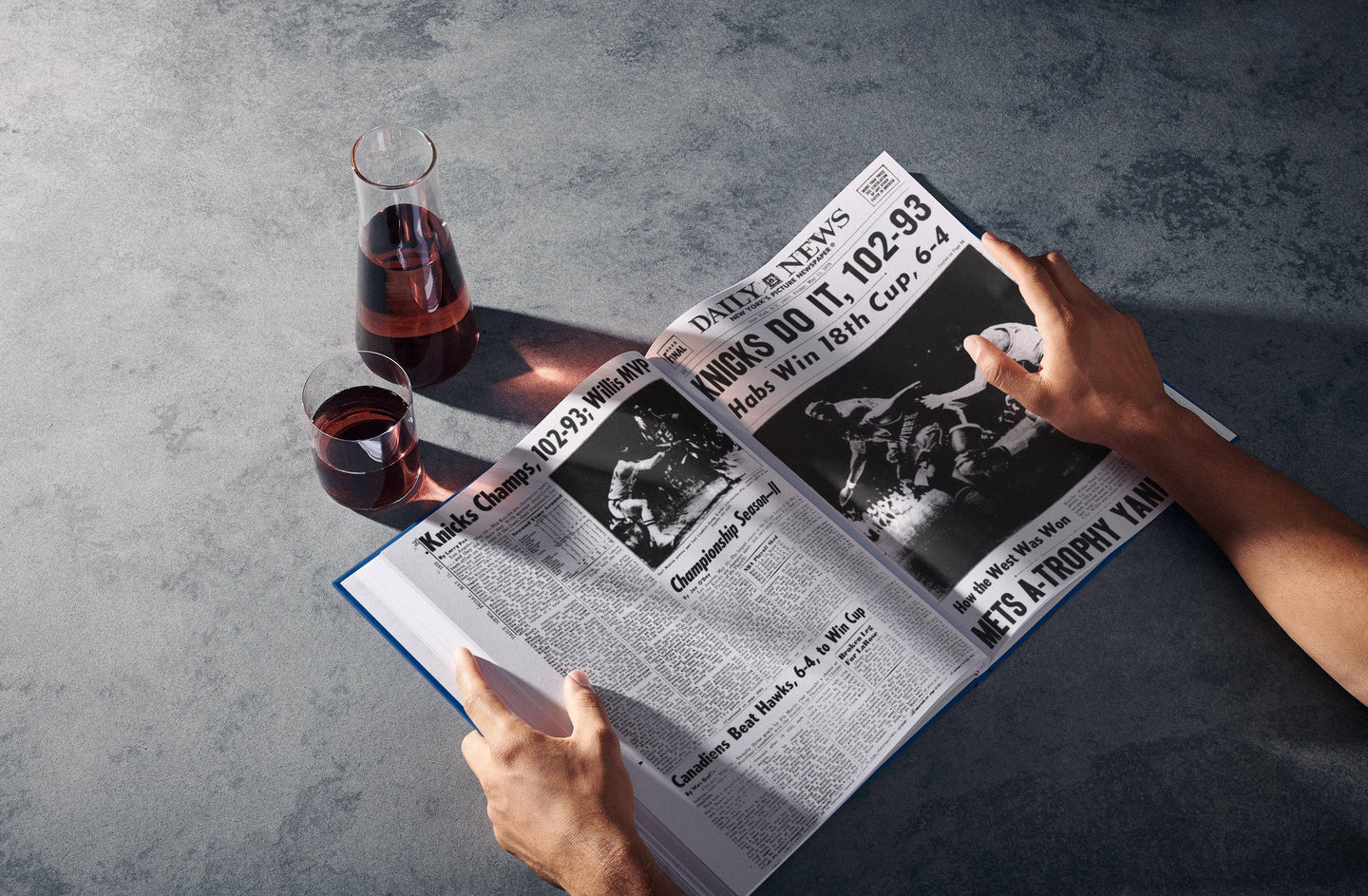No country had ever seen a war on such a scale as World War One, or the “Great War” as it was known at the time. When war broke out, the mood in the country in 1914 was patriotic, and signing up to fight in the war was seen as a moral duty. Nobody knew what was to come and the public had no idea of the implications of war, especially with many thinking it would be a quick battle with Germany.
There were a lot of misconceptions about the war, with one of the most popular beliefs being that the war would be over by Christmas, not a 4-year long, bloody struggle.
The start of World War One was depicted in the newspapers in Britain in detail as events unfolded, reporting on events such as the assassination of Archduke Franz Ferdinand in Sarajevo and Britain’s declaration of war on Germany. By analysing newspapers from the time, we can see how the public would have first read about the outbreak of war. This post takes you through some of the newspaper headlines from 1914, announcing the start of the war and analysing the impact of these headlines. Exploring these headlines is fascinating, since we can see how people at the time would have discovered news of the war.
You can see even more newspaper headlines from the time in our World War One book.
Assassination of Archduke Franz Ferdinand
While there were many factors that caused the First World War, the assassination of Archduke Franz Ferdinand was the catalyst that began the conflict in Europe. The Daily Mirror reported on the event on Monday, June 19, 1914 with the headline:
“Aged Austrian Emperor Loses his Nephew at an Assassin’s Hand”
At this point, the public had no idea the event would amount to a global war, and the newspaper simply reported on the death of the Archduke. The second headline read:
“Heir to the Austrian Throne and His Wife Shot Dead In Street at Serajevo After Bomb Had Failed.”

The Daily Mirror front page, Monday, June 29, 1914
On the second page of the newspaper, the Daily Mirror wrote that “This terrible news, which has shocked all Europe, reached London last night from Vienna,” showing that the newspapers announced the news to the public almost immediately. The newspaper wrote in detail about the event, stating that “Two deliberate and cold-blooded attempts, it appears from the telegraphed accounts of the tragedy, were made.”
The public were reading about the assassination of the Archduke and discovering how he was murdered, most probably being shocked by the news and wondering why he was assassinated.

The Daily Mirror, Monday, June 29, 1914
The First Mention of War
On page 3 of the newspaper, the public would have first read about a potential war. The headline on the page was:
“Declaration of War by Austria-Hungary on Servia”
This showed the public how the assassination attempt had affected the countries and it was the first time war had been announced in 1914. At this point, Britain appeared to be uninvolved in conflict and it seemed like fighting was just happening elsewhere in Europe. Following this headline, the newspaper also wrote:
“The Terrible Danger That Threatens Europe”

The Daily Mirror, Wednesday, July 29, 1914
This headline reveals that the conflict between Austria-Hungary on Serbia could have devastating consequences for the rest of Europe, suggesting that other countries may be threatened by this outbreak. The newspaper goes on to explain what the “terrible danger” may be, recognising the potential for a wide scale European war. It explains the relationships between countries and eventually shows how Britain may come to be involved:
“Russia has declared she will not see Serbia crushed. Relations between her and Austria are dangerously strained, and Russian troops are being hurried to the frontier.”
After explaining the chain of relationships between each country, this section of the newspaper finishes by describing the relationship of Britain. In short, the newspaper shows that Britain has a duty to defend Belgium should conflict reach her borders:
“Britain is joined by close ties, though not by a formal alliance, to France and Russia, who count on her backing. Britain is bound to defend the neutrality of Belgium if her territory is invaded during a Franco-German war.”
In a concise way for the public, the newspaper reveals the order of threat to Europe, and predicts what might happen as a result of the outbreak of conflict. This would have been particularly useful for people who were unaware of how war between Austria-Hungary and Serbia would be a threat to Britain:
“Russia will defend the Servians by force of arms.”
“Germany would then join the war.”
“France would have to take the side of Russia and Italy that of Austria and Germany.”
“Britain may thus be involved.”
“There is also a possibility that the Balkan States – Romania, Greece and Bulgaria – with Turkey, may join the war.”
Since there was potential for war at this point, the newspaper had a lot of questions to raise to consider the possibility of war. When the public were reading this issue of the newspaper, war was not inevitable, so the newspaper was helping the public get to grips with events and work out the situation in Europe.
Britain Declares War On Germany
6 days after the previous newspaper, the Daily Mirror printed an issue with the headline:
“Great Britain Declares War on Germany”

The Daily Mirror headline, Wednesday, August 5, 1914
Before war was declared, an ultimatum was sent to Germany, requesting she remove her troops from neutral Belgium. When this ultimatum was ignored, Britain had no choice but to declare war on the country. Readers of the Daily Mirror would have first read about Britain’s entrance into the war with this headline, which will have shocked the public and left them wondering how the war would unfold.
The heading on the next page of this newspaper issue read:
“Britain in a State of War with Germany”

The Daily Mirror, Wednesday, August 5, 1914
This revealed that peaceful negotiations were no longer an option due to Germany ignoring the ultimatum. The outbreak of world war 1 also meant the public needed to be made aware of how the country might be affected.
The newspaper goes on to describe the preparations taking place in the country to prepare it for war, such as the government taking control of the railways and an announcement on state control at home. The newspaper also printed this address from the King:
“At this grave moment in our national history I send to you and, through you, to the officers and men of the fleets of which you have assumed command the assurance of my confidence that under your direction they will revive and renew the old glories of the Royal Navy, and prove once again the sure shield of Britain and of her Empire in the hour of trial.”
There is a sense of patriotism and a notion of preparing for duty as the newspaper reports on the outbreak of war. This is also shown when the Daily Mirror reports on the public’s reaction, stating that huge crowds began to gather outside Buckingham Palace and cheered when the King, the Queen, the Prince of Wales and Princess Mary all appeared on the balcony.
The public were showing their support to their country and rulers, unaware of the true cost of the war and the length of time conflict will go on for.
The Daily Mirror issue writes a section on the “War Situation at a Glance” to inform the public of the war in a concise way, helping citizens get to grips with the current conflict. The newspaper also wrote “British Warship Reported Sunk by German Fleet,” the first indication of German aggression towards Britain.


























Follow us